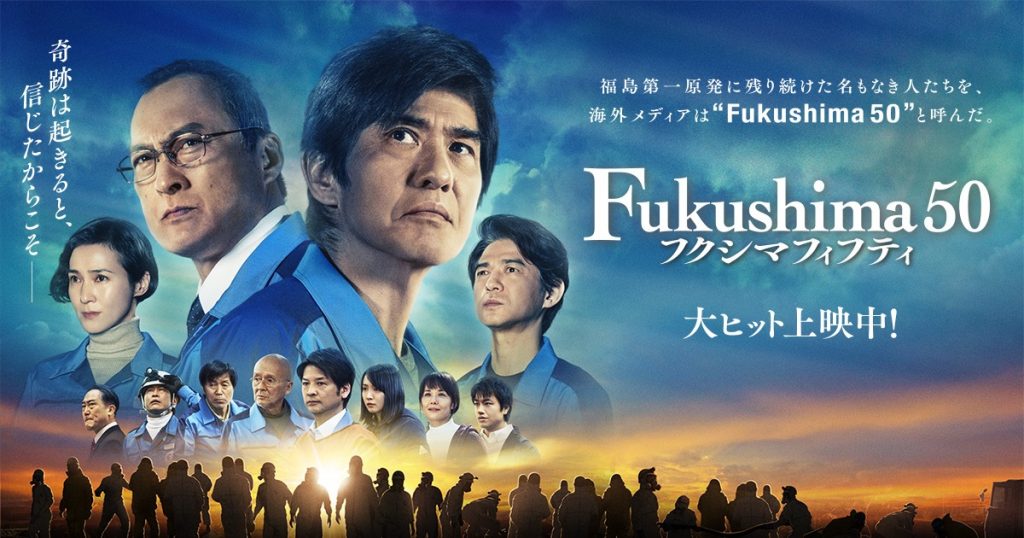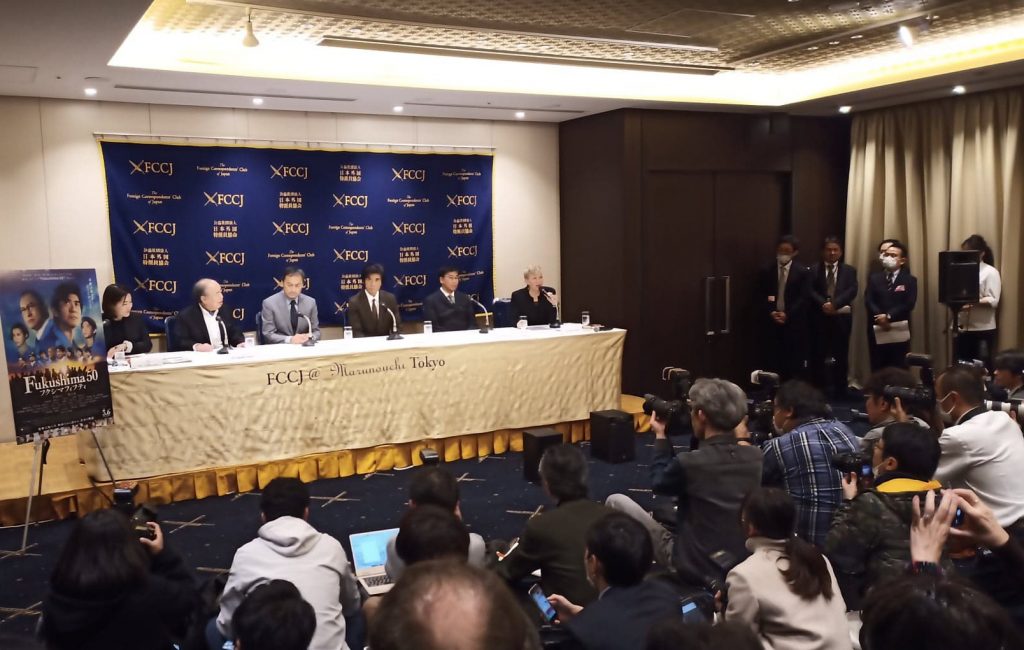



Fred Varcoe, Tokyo
As Japan prepares to remember the deaths and mayhem of March 11, 2011, a new movie, Fukushima 50, provides the world with a reminder of how close Japan came to a full-blown nuclear disaster. Japan’s own Chernobyl was avoided by a bit of luck, and the bravery and resilience of the so-called Fukushima 50, a group of men and women who stayed at their posts to save Japan.
Even knowing the eventual outcome, Fukushima 50 is a nail biter, especially in the first half of the film as the crisis quickly jumps from disaster to disaster; a 9.0 earthquake, a 15-meter tsunami and a nuclear meltdown.
The challenges facing Fukushima and the Tohoku region of Japan were seemingly insurmountable.
As Japan tried to cope with the horror of the tsunami, the staff of Tokyo Electric Power Company’s Daiichi Nuclear Plant were left isolated, connected to the outside world by video links to the company’s head office in Tokyo and the crisis center at the prime minister’s office.
Director Setsuro Wakamatsu chose to give a name to only one of the Fukushima 50, its de facto leader Masao Yoshida, who died in 2013 of throat cancer and is played in the movie by Ken Watanabe. The others, heroes and villains alike, are hidden behind pseudonyms.
But the executives at TEPCO and Japan’s political leaders won’t be able to hide their shame after viewing this movie. The personnel at the plant were staring death in the face. The men in suits in Tokyo were paralyzed with panic. The head of Japan’s nuclear watchdog wasn’t even a nuclear engineer; he was an economics graduate.
This did not sit well with the Fukushima 50. At one stage, Yoshida is portrayed in the movie dropping his pants and baring his backside to the camera that the prime minister (not named, but the premier at the time was Naoto Kan) and his bosses at TEPCO are viewing via a screen in Tokyo. Director Wakamatsu may have been diplomatic in his comments during a post-screening press conference at the Foreign Correspondents Club of Japan, but the movie is a resounding slap in the face for corporate Japan and its political masters.
And it’s a slap in the face not just from Wakamatsu, but on behalf of the people of Fukushima, northeast Japan and the rest of the country for whom their leaders had no answers in the face of nature’s wrath and sciences reality.
Wakamatsu stated that the movie had two themes: Man is no match for nature, and we must learn from the lessons of Fukushima. What attracted me to this project was the story that portrays all the weaknesses and all the strengths and courage that we have as human beings, director Wakamatsu said. His supervising producer Tsuguhiko Kadokawa agreed.
If you were to categorize this film, I would say that it is a film about society, Kadokawa said. There are many film companies that shy away from these kinds of issues, but what I think is at the core of this film is the fact that human beings could not conquer nature. As Mr. Watanabe states in the film, perhaps we have made a mistake as human beings. I’ll be happy if the audience can take that message home from the movie.
Nature is once again proving itself to be stronger than man with the coronavirus epidemic and once again Japans leaders are dithering in their response. Wakamatsu’s film serves only to remind us that Japans leaders are serial failures in a crisis one thinks of the Kobe earthquake and the Aum Shinrikyo attacks and Japan Inc. is rife with ineptitude, as seen in the Takata airbag scandal, the Olympus scandal, the Toshiba scandal, the Nissan scandal, and so on.
When we are in the throes of a national crisis like this I think films, especially this film, might provide an opportunity to reflect upon ourselves and reflect about what choices we should be making and which direction we should go in, actor Ken Watanabe said.
The film may well do what Japans media and justice system failed to do in the months and years after 2011 and hold those responsible to account. Despite egregious errors in the planning and operation of the Daiichi nuclear plant, no one from TEPCO was held accountable for the disaster, finding a useful ally in nature rather than human incompetence.
The wheels of justice turn very slowly in Japan. Fukushima 50 gives the people of Japan a chance to make sure those wheels don’t stop turning.
Fred Varcoe is a Japan-based freelance reporter